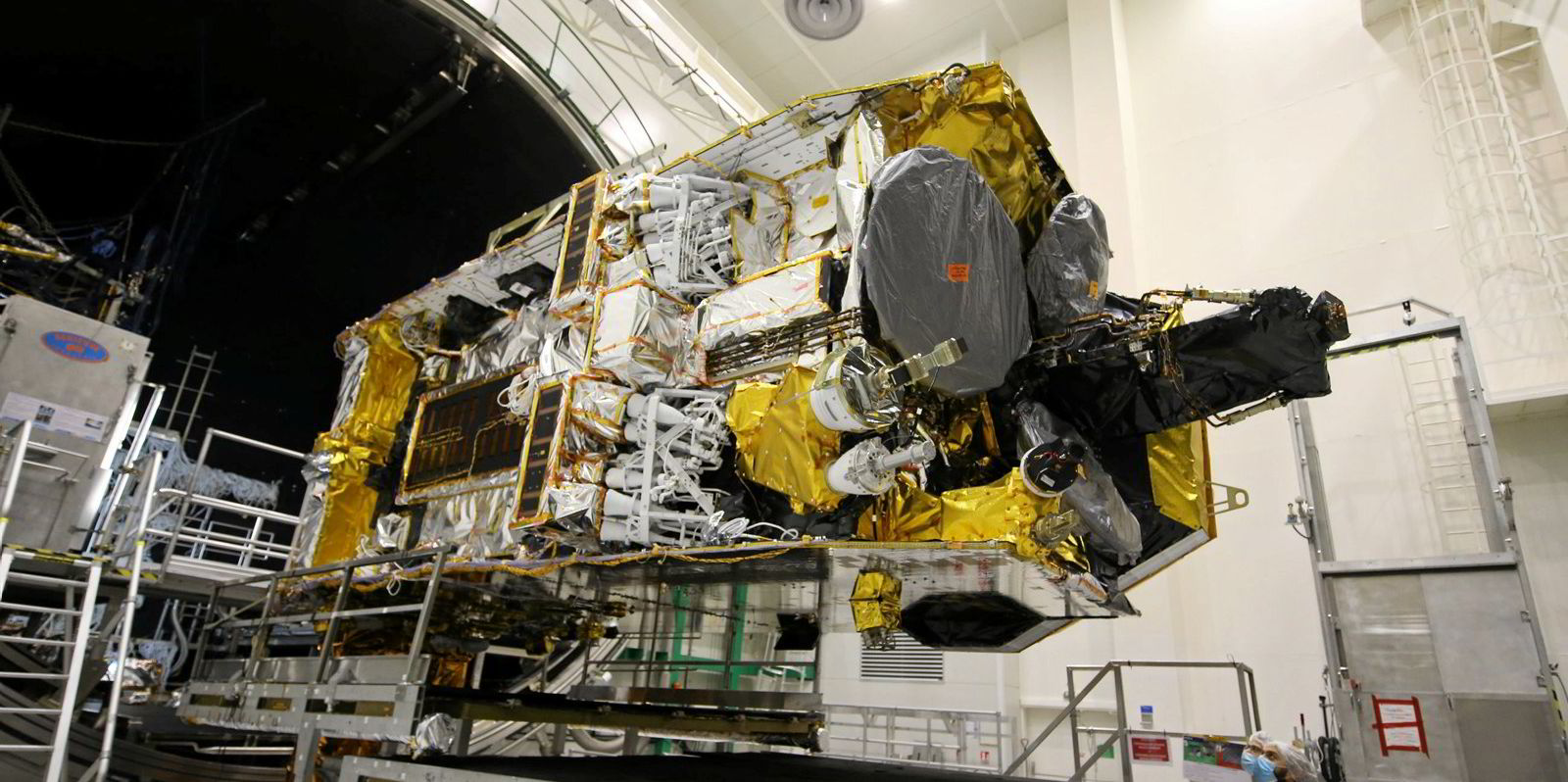Viasat is at pains to reassure the UK government that its takeover plans for Inmarsat will not be detrimental to the country's satellite communications and defence interests.
That should provide some solace for Inmarsat's core shipping customers, even though the US-based group's plans for the $7.3bn merger appear mainly aimed at plugging gaps in its key aviation and domestic customer networks.
Consolidation in the satellite communications industry will result in a handful of major players within the next few years, according to Inmarsat chief executive Rajeev Suri, employed this year from Nokia.
The Viasat-Inmarsat merger will create a group with 20% of global satellite revenues at a time of expensive satellite network expansion alongside likely falling consumer prices.
In its webinar for analysts, Viasat chief executive Rick Baldridge set out a vision of the combined group being able to provide a more complete service for mobility customers.
The merged group would target "a multi-layered, hybrid network architecture which combines the best characteristics of each frequency band, orbit and can include terrestrial augmentation for the lowest latency at the lowest total cost".

This mirrors what Inmarsat has presented over the summer as its strategy for shipping. Inmarsat's Orchestra and Elera structures set out plans for blended and overlapping satellite beams with the capacity to provide increasing digital internet of things services to ships.
But deeper into the Viasat presentation, it became clear that although Inmarsat may benefit from being part of a financially stronger group, it is Viasat's customer base that might notice improvements most.
Viasat chairman and co-founder Mark Dankberg said the takeover had a similar complimentary logic to its 2009 acquisition and merger of Wild Blue.
"We will have very, very high amounts of coverage over the land areas where most of the demand is, including in the mobility space, and will also have a lot more flexible coverage over the oceans.
"With Inmarsat, we get a lot of resiliency and redundancy, and the ability to fit some of their more programmable satellites into areas that we believe need more bandwidth at the time," he said.
It would give Viasat disproportionate value out of Inmarsat's satellite coverage than just their gigabit capacity, he added.






